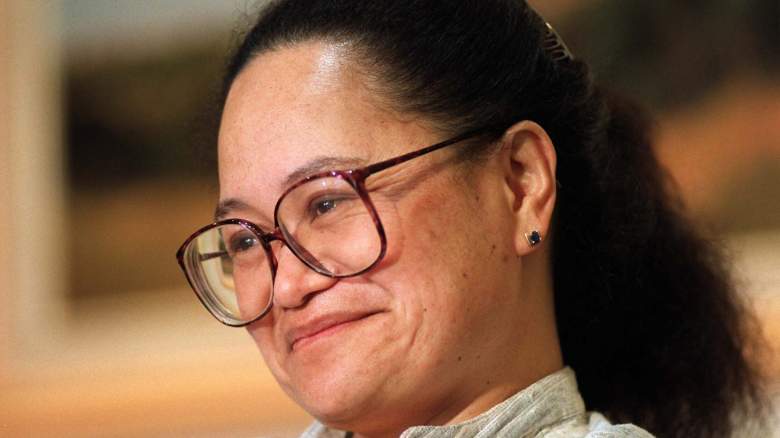
The International Committee of the Red Cross (ICRC) and the Government of New Zealand are hopeful that a nurse kidnapped by ISIS in Syria in 2013 may be alive. The ICRC revealed for the first time on Sunday that they believe kidnapped nurse Louisa Akavi is alive in Syria. The ICRC says it felt that with ISIS collapsing “the time was right,” to discuss Akavi’s possible whereabouts where the New Zealand government believes it may put her in greater danger.“Our preference, of course, is that the case not be in the public domain,” Prime Minister Jacinda Ardern said. Akavi is the longest-held hostage in ICRC’s history.
Here’s what you need to know about Louisa Akavi and her life-saving work in Iraq.
1. Louisa Akavi Is a Midwife Who’s Previously Worked in Combat Zones
Akavi,62, is New Zealander who attended nursing school in Wellington and underwent midwifery training in Scotland. After working in the nursing field for several years, Akavi joined the New Zealand Red Cross and was often deployed to high-conflict locations such as Afghanistan, Somalia, Iraq, and Chechnya. In 1996 while in Chechnya, Akavi survived an attack which killed six volunteer hospital workers, including her close friend, Sheryl Thayer. She was awarded nursing’s highest award, the Florence Nightingale medal in 1999. “We all know the risks when we take these assignments,” she said in 1997.
2. Louisa Was Abducted With six Colleagues in 2013
Louisa Akavi was kidnapped October 13, 2013, while traveling back to Damascus after delivering medical supplies. Just outside of Saraqeb in Idlib province, armed men reportedly fired into the vehicles, stopped the convoy and took seven hostages, including Akavi. Four were released the following day but Akavi and drivers Alaa Rajab and Nabil Bakdounes were kept as prisoners.
Akavi formed a close relationship with her cellmate Kayla Mueller, a humanitarian aid worker from the United States, after the pair were housed together in Raqqa, Syria. Mueller cared for Akavi when she became severely ill and needed help writing a “proof of life” letter when ISIS attempted to negotiate a ransom. “It sounds like they protected each other to me. Kept each other strong. It sounds like Louisa was a very strong woman. I think they were good for each other,” Marsha Mueller told New Zealand news website Stuff. Mueller and Akavi were eventually split up – Mueller was sent off to become the property of ISIS leader Abu Bakr al-Baghdadi while Akavi was forced to work in an ISIS-controlled hospital. Mueller was reportedly killed in a February 2015 airstrike.
3. Akavi Has Been Called “The Secret Hostage”
The possibility that Akavi is still alive has been a closely guarded secret since her 2013 abduction for two reasons. There was fear she might be executed if her nationality was revealed and ransom demands weren’t met.
While several European countries buckled and paid for the release of their citizens, New Zealand and the ICRC have a strict policy against acquiescing to terrorist demands. Officials also feared that information released about Akavi might conflict with any possible story she had given her captors.
4. Akavi Has Been Spotted Several Times
The ICRC has been making weekly visits to camps in northern Syria, showing Akavi’s photo to officials and refugees who have fled ISIS-controlled areas.
At least two people claim to have seen Akavi at a medical clinic in Sousa, a village in one of the last remaining ISIS strongholds. Other reports received by the ICRC have given her colleague’s a reason for hope. She’s allegedly been sighted in Abu Kamal in 2016, Raqqa in 2017 and Mayadeen in 2018. The latest intelligence reports have placed her near the Syria-Iraq border.
5. Missions to Rescue Akavi and Other Hostages Have Been Attempted
In 2014, U.S. Delta Forces attempted an unsuccessful mission to rescue hostages captured by ISIS militants. During her early imprisonment, it’s believed Akavi was housed near journalists James Foley and Steven Sotloff, and British aid worker David Haines, all of whom were publicly executed.
It’s just been revealed that New Zealand has been using a non-combat special operations team to provide search and rescue operations on behalf of Akavi and any other remaining hostages. According to a statement by New Zealand’s Deputy Prime Minister Winston Peters, “This non-combat team was specifically focused on locating Louisa and identifying opportunities to recover her.”